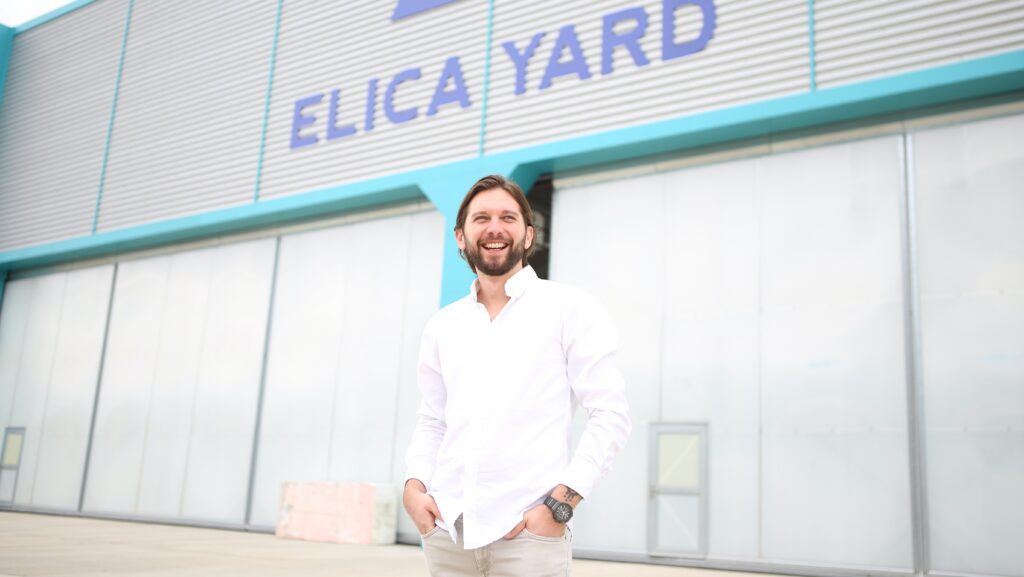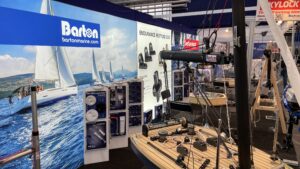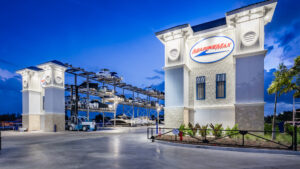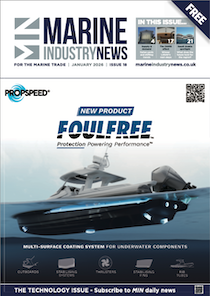Manufacturers leading the charge on marine sustainability and smart innovation are using Metstrade to get the message across
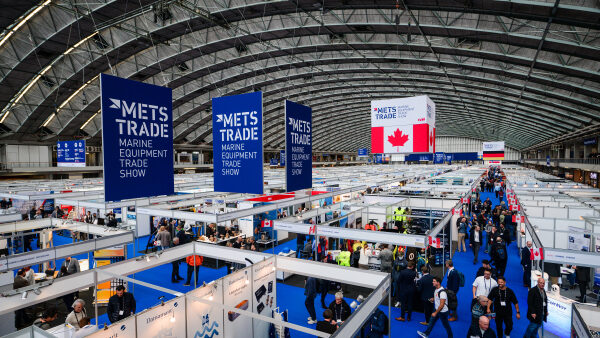
Sustainability and smart tech are no longer future trends in the marine industry — they’re current imperatives. From the design table to the engine room, equipment manufacturers are reimagining products to reduce environmental impact, improve performance, and meet the rising expectations of both consumers and regulators.
At Metstrade this transformation will be on full display. It’s not just where new products are launched — it’s where global brands like Scanstrut, Smartgyro, and Vetus, and expanding and niche brands like Frigomar, and Guidi are shaping the conversation, connecting with industry stakeholders, and aligning innovation with responsibility.
All of this is taking place while looking for expanding opportunities. In the case of Scanstrut, that means melding its marine offering into the world of RVs . . . with sustainability underpinning it all.
“Emerging markets aren’t just defined by geography anymore, they’re defined by lifestyle trends,” says Grant Fox, Scanstrut’s head of marketing. “The outdoor and off-grid sectors are booming globally, fuelled by younger consumers who value freedom, design, and sustainability. These users are demanding better integration of smart tech, and connectivity.”
From camper vans to superyachts: convergence in user demand
For Scanstrut, this means ensuring that every innovation supports a cleaner, more efficient experience, whether that’s through low-power wireless charging, reduced packaging waste, or more durable materials that extend product life – and that products can cross marine and RV markets. The latter’s become a huge opportunity for the company.
“We’re seeing the boundaries between boating, and RV markets start to blur,” Fox says. “With the launch of our Ventura Series, we’ve taken our marine-grade technology and brought it into the fast-growing RV and adventure vehicle markets.”
Whether it’s a boat or a camper van, he says: “People now expect the same level of comfort, connectivity, and design detail. We see that convergence as one of the most exciting shifts in the market today, and we’re right at the heart of it.”

What consumers want vs what builders deliver
But while Fox is adamant marine consumers value sustainability, this isn’t necessarily the experience of boatbuilders. During Cannes Yachting Festival when discussing sustainability, Sunseeker’s CEO Andrea Frabetti told MIN that “if the market really required [it], now everyone could put together a hybrid yacht.”
And Fiorella Besenzoni, whose company produces components such as gangways, and fly and stern cranes – with a strong push to electric – recently mentioned that while the market’s definitely changing she’s not sure “if it’s because it’s the shipyards are asking more for [sustainable] help than the final customer.” But “if the final customer finds the solution already on the boat when they buy it, they get used to it.”
Is smart design now sustainable by default?
In B2C events Daniele Guidi – quality & sustainability manager for Guidi Srl, Italy (pictured on the right below) – is experiencing a significant growth in consumer awareness on sustainability, such as the products’ life cycle, materials’ characteristics etc. The company produces thru-hulls, seacocks, fittings and hydraulic accessories and more.

“We think the demand for sustainability is coming from both sides, consumers and boatbuilders. We manufacture products that are quite specific (valves, water strainers, water intakes etc), thus our number one target are usually the boatbuilders’ technical departments that we meet in Amsterdam.
“But consumers do care about those subjects, and boatbuilders are surely aware of their always evolving needs and requests.”
Marine sustainability is a design mandate
While Fox is bullish about consumer pull-through, he also notes the significant push from boatbuilders. “Across the marine market, sustainability is shifting from a marketing message to a design mandate. What’s interesting is that this change is being driven from both ends: consumer expectations are rising, but it’s the major boatbuilders and OEMs who are embedding sustainability into their long-term strategies.
“Owners are more aware of their environmental footprint than ever before, but the real transformation is happening in the supply chain, where manufacturers are rethinking materials, production processes, and product lifecycles.”
Fox believes that sustainability now defines quality. “Products that are better built, longer lasting, and easier to install naturally align with sustainability goals. The real opportunity lies in making sustainability effortless for the user — technology that’s greener by design, not by compromise.”
How Metstrade powers the sustainability message
Elena Ratti, marketing and communication, Smartgyro agrees. “We believe the concept of sustainability is closely linked to efficiency, performance, and long-term reliability.”

She says the company’s recent product developments reflect this approach – the optimised SG40 has a re-engineered system that delivers higher torque, lower power consumption, and reduced weight, while maintaining its compact footprint.
The company’s presenting a new integration for the SG20 at Metstrade this year, its most compact stabilizer designed for boats between 45 and 55 feet. It allows the SG20 to operate for several hours using lithium batteries, providing added flexibility and independence at anchor.
“Metstrade gives us the opportunity to showcase these latest developments and connect directly with builders, dealers, and end users who value technical refinement and real-world performance,” Ratti says.
Manufacturers step up as regulation tightens
According to Sander Gesink, marketing director at Vetus, sustainability in leisure boating is being driven by both regulation and changing consumer expectations. “Increasingly, boat owners are looking for practical ways to reduce their environmental impact without adding complexity or losing reliability.”
He says Vetus’ commitment is reflected in the approval of its M-Line and D-Line marine diesel engines for operation with Hydrotreated Vegetable Oil (HVO), enabling up to 90 per cent CO₂ reduction without engine modifications. That’s alongside the development of electric propulsion systems for zero-emissions.
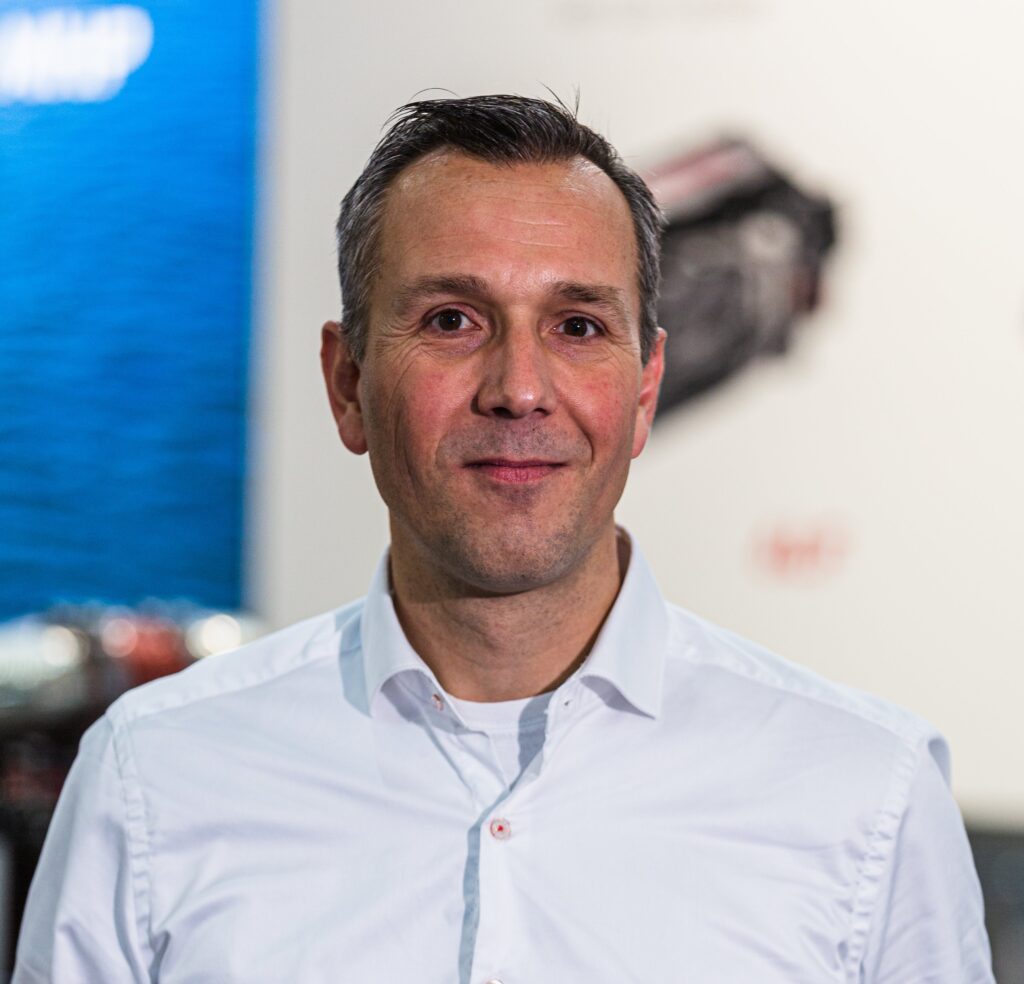
These developments matter to Gesink, and the marine community. Reducing emissions and expanding access enables everyone to enjoy boating responsibly. “As more waterways become designated green zones, electric propulsion is becoming an important enabler of unrestricted cruising, while renewable fuels like HVO give existing boaters a straightforward path to cleaner operation.
“Metstrade provides a platform to explore these shifts, exchange ideas with partners, and ensure that both boatbuilders and owners are equipped for a more sustainable future.”
Tech that lasts: efficiency is the new standard
Like Vetus, Luca Santambrogio, export manager for Frigomar (which makes air conditioning and refrigeration systems) says the company is continuing to invest in development new technologies and products as well to improve its production lines and quality standards in pursuit of sustainability.
“The market is requiring solutions that can respect the environment and at the same time guarantee energy savings.” He says that Frigomar has been ahead of the game since 2013 when it invested into variable speed technology that saves up 50 per cent in energy electrical consumption compared to the equivalent traditional air condition systems.

“During 2022 we have presented new compact units, the first variable frequency air conditioning system in the world that can work in direct current at 24V or 48V; during 2025, we lunched the 12V version,” he notes and “starting from September 2025 we added a new production site of more than 4,000 m2 to our historic headquarter so as to increase the production efficiency.”
With all this, the sustainability conversation is becoming more sophisticated at Metstrade. “We’re seeing a genuine market shift where design innovation and sustainability are no longer separate agendas, they’re becoming one and the same. That’s where the industry’s next leap forward will come from.”
Likewise, Eric Fetchko, president of Dometic Marine, says: “Smart technology remains a key focus for Dometic as we develop intelligent, connected solutions that enhance efficiency and control for boaters.
“By combining advanced technology with expert craftsmanship, we ensure exceptional quality, seamless integration, and a superior experience across our products and customer journey.”

Dometic’s taken its commitment further over the past year. Fetchko says the company’s introduced advanced app integrations, intuitive interface displays, and smart monitoring systems, making it easier than ever for users to control and personalise their onboard environment. “At Metstrade, we’ll showcase how this ongoing investment in technology and craftsmanship is shaping a new era of effortless, connected boating within the Dometic ecosystem,” he says.
The marine industry’s transition toward a smarter, more sustainable future is accelerating — and Metstrade remains the key platform driving it forward. Manufacturers are aligning environmental goals with product excellence. As consumer expectations evolve and regulations tighten, brands that innovate responsibly — and communicate clearly — will be those shaping the industry’s future, one breakthrough at a time.

